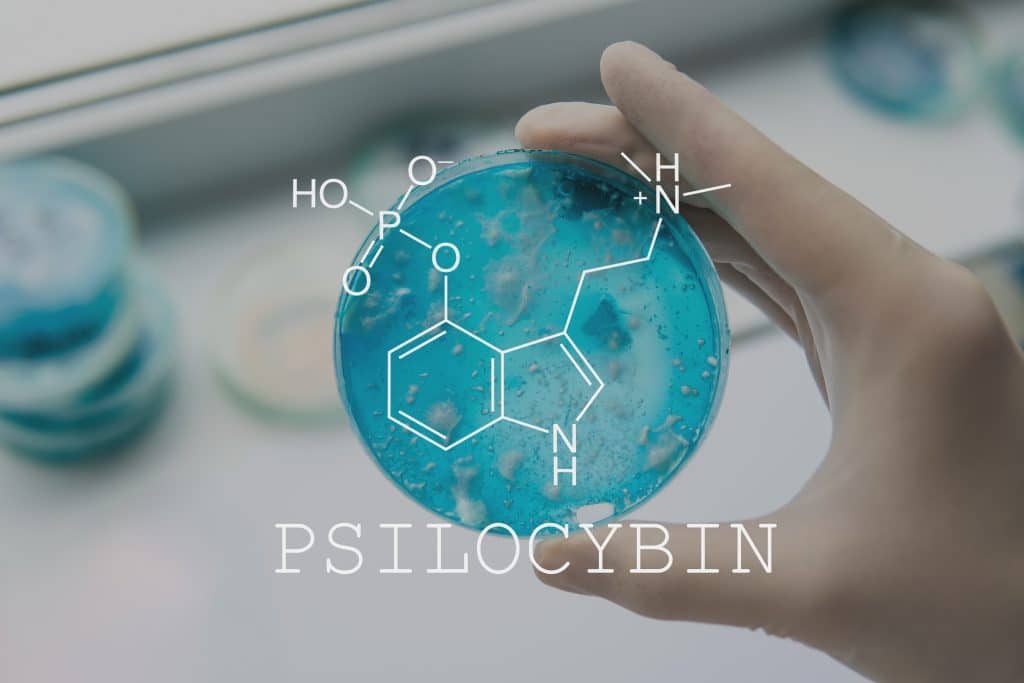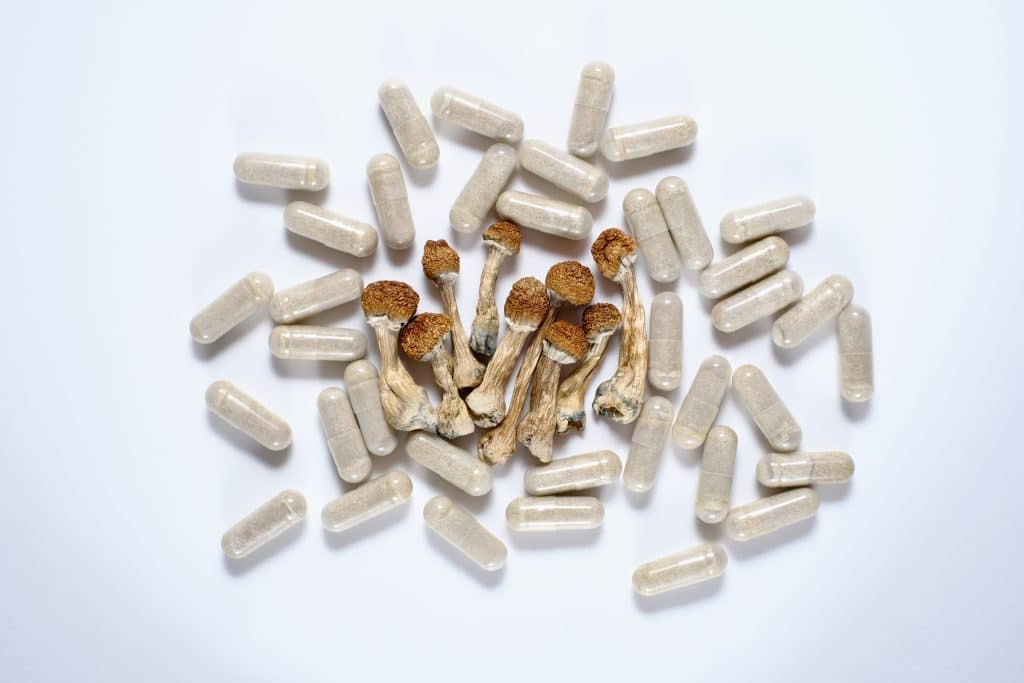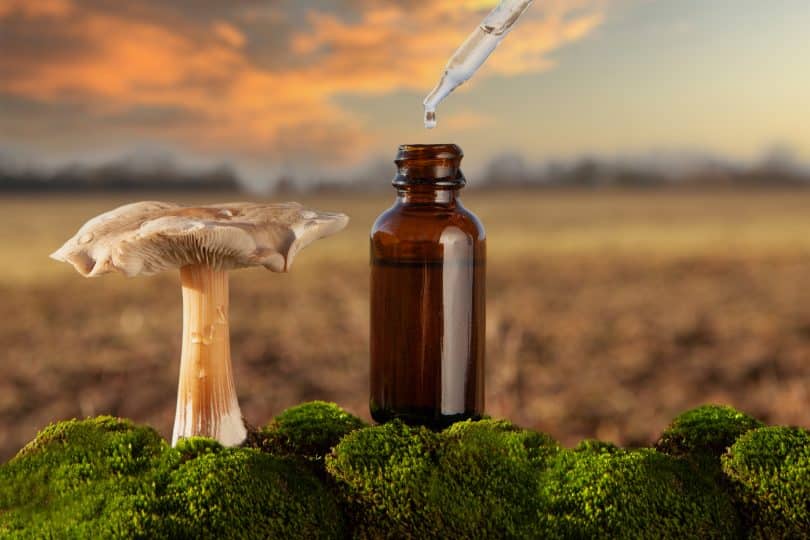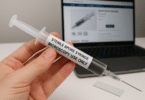Whether you like it or not, modernized psychedelic medicine is on the horizon. And when I say modernized, I’m talking about next-generation, synthetic versions of the psychedelics you’re currently familiar with. A handful of these compounds are on the fastrack to clinical trials and FDA approval, and will likely be available sooner than the natural counterparts they were modeled after.
To stay current on everything important happening in the cannabis and psychedelics industries, make sure to subscribe to The THC Weekly Newsletter. Also, it’ll get you premium access to deals on cannabis flowers, vapes, edibles, and much more! We’ve also got standout offers on cannabinoids, like HHC-O, Delta 8, Delta 9 THC, Delta-10 THC, THCO, THCV, THCP & HHC, which won’t kill your bank account. Head over to our “Best-of” lists to get these deals, and remember to enjoy responsibly!
Next-Generation Psychedelics
Before getting into the research and trials, it’s worth discussing next-generation psychedelics in more detail. Next-generation drugs are simply those that are in the latest stage of development. In the world of psychedelics, it usually refers to synthetic versions of natural compounds, like CYB003 which is supposed to replicate psilocybin. Now, here’s where things get a bit more complicated – there are hundreds of them! On some levels, the goal is to improve these molecules in some way. For example, researchers have long been trying to develop a version of psilocybin that does not induce nausea, or a type of ibogaine that doesn’t leave users at risk for heart attacks, or various psychedelics with shorter/lighter trips. The possibilities are endless.
But on a different level, we’re seeing a race to create all sorts of patentable compounds that pharmaceutical companies can make a profit from. We know that you cannot patent nature, nor can you patent a federally illegal product (which most psychedelic compounds still are), so the only way for these companies to make money off psychedelics is by creating their own. Typically, the goal is to capitalize on natural compounds, but it’s not uncommon for companies to try making their own, slightly tweaked version of existing synthetics too. Numerous different types of LSD, Ketamine, and MDMA are currently in various stages of development.
It sounds weird (because it is), but it’s happening in the many industries, including cannabis. For decades, all we had were flowers, maybe some edibles and oils, but overall, there was very little product variety, understandably. Then suddenly, we got more. We got concentrates that were extracted using various methods for differences in the final product. We got SO many edibles. We got more unique products like THC patches, inhalers, and even suppositories. And then came the new cannabinoids. Over the last couple of years, the market became flooded with new cannabinoids, each one supposedly stronger than the last. And now we’re seeing similar patterns in the psychedelics industry, but with things moving at a seemingly much more rapid pace.
MM-110 Going Into Phase 2a Trials
Originally known as 18-MC but recently rebranded, MM-110, which is a synthetic version of ibogaine developed by MindMed, is probably one of the most advanced of the next-generation psychedelics, as far as clinical testing goes. It’s expected to enter Phase 2a efficacy trials this quarter for the treatment of Opioid Use Disorder.
Ibogaine is a naturally occurring psychoactive alkaloid found in many different plants, but primarily in the root bark of Tabernanthe iboga, a tropical shrub native to Central Africa. Ibogaine has been used ceremoniously by indigenous people for rite of passage and healing rituals, as well as medicinally to treat a multitude of different conditions. In low doses it can help with fatigue, pain, anxiety, and other day-to-day ailments, while in higher doses it can conjure up life-changing therapeutic breakthroughs in the form of intense psychedelic trips.
Although most psychedelics are touted as being effective for treating addiction, Ibogaine appears to be one of the most promising. Studies are limited, but a great deal of anecdotal evidence exists in the form of case reports and survey data, with hundreds of people sharing similarly successful stories of their Ibogaine experiences. The problem is that Ibogaine is also one of the riskier psychedelics, and is said to be more likely to lead to cardiovascular problems than other compounds – an issue that MindMed claims they have managed to eliminate with the creation of MM-110.
Phase 1/2a Trials for CYB003
CYB003 is a next-gen psilocybin created by the company Cybin. Under the assumption that they will receive the necessary approvals within a few weeks, they plan to begin the Phase 1 portion of their Phase 1/2a trial before the end of the next quarter. Their research will look at using CYB003 to treat Major Depressive Disorder.

Natural psilocybin itself has shown promising results in Phase 2 clinical trials for the treatment of numerous different types of mental health disorders. One problem cited when working with natural versions, is that real psilocybin is difficult to apply therapeutically because there is so much variability of effect between different people. Of course, that (“your mileage may vary”) can be said about most consumable products anyway, but establishing some form of standard dosing with natural medication has been a long-standing, legitimate issue.
Another dilemma people have with using magic mushrooms medicinally is the length of the trip, which can last up to 8 hours depending on the strain and individual. Of course this could be mitigated through microdosing, but those small doses might not be enough for some patients. According to Cybin, both of the aforementioned issues are not present in their CYB003 compound and they claim their medication will offer “safer dosing options and more predictable patient outcomes.”
SPL028 Moving Into Phase 1 Trials
SPL028 is a synthetic type of DMT that was created by a company called Small Pharma. They expect to enter Phase 1 safety trials at some point during the second half of 2022. They are not testing this compound as a treatment for any specific condition yet, but rather, trying to create a version of DMT that has longer lasting effects (since natural DMT produces a very short, roughly 15-minute high).
Additionally, Small Pharma will explore different delivery methods to see which one is best. More specifically, they want to examine the differences between intravenous and intramuscular delivery. In a small study conducted on natural DMT from ayahuasca, it was found that IV delivery was much more potent than IM, so we can expect to see similar results from this next-generation DMT.
Last year, Small Pharma conducted some successful trials on a similar DMT compound they created, called SPL026. In their research, they discovered that SPL026 was consistent in treating symptoms of various depressive disorders. Other trials have found DMT to be effective in treating symptoms of addiction as well (as is commonplace for most psychedelic therapies).
FT-104 and MEAI Entering Phase 1 Trials
These drugs are a bit different, because they are not modeled after natural psychedelics like the others on this list. The first one, FT-104, is a pro-drug to the more obscure, already-synthetic psychedelic, 4-HO-DiPT. A prodrug is a medication that is not active until it is metabolized, so simply put, FT-104 metabolizes into 4-HO-DiPT after administration.
FT-104 was created by Field Trip Health, who plans to launch Phase 1 trials within a few months. The effects are said to be similar to psilocybin, and the goal is to test the efficacy of FT-104 against Treatment-Resistant Depression and Postpartum Depression.

And finally, we have MEAI, which is by far the most unique compound on this list, because unlike the others, it is not based on any existing psychedelic at all. It’s a completely novel molecule created by Clearmind Medicine. Phase I trials are expected to begin sometime this year, and the aim is for MEAI to treat Alcohol Use disorder.
What is particularly compelling about the methodology here is that, MEAI could receive approval to be used in two completely different ways. First, it could be prescribed by a doctor as a medication. Second, it could be made available as an alcohol substitute that anyone would be able to buy at their local liquor store. The concept is unique, and it will be interesting to see how this plays out – with MEAI, as well as next-generation psychedelics of the future.
Final Thoughts
Again, regardless of what anyone’s thoughts are on synthetics, this seems to be the future of psychedelic medicine. Also worth noting, these are all publicly traded companies that are on the verge of creating what might be some of the first, FDA-approved psychedelic medications – so do with that information what you will.
Welcome to the site! Thanks for making it to CBDtesters.co / Cannadelics.com, the top internet spot offering up fully-rounded independent news covering the growing cannabis and psychedelics industries. Stop by frequently to stay up-to-date on these dynamic industries, and make sure to sign up to The THC Weekly Newsletter, to ensure you’re never late on getting the news.







